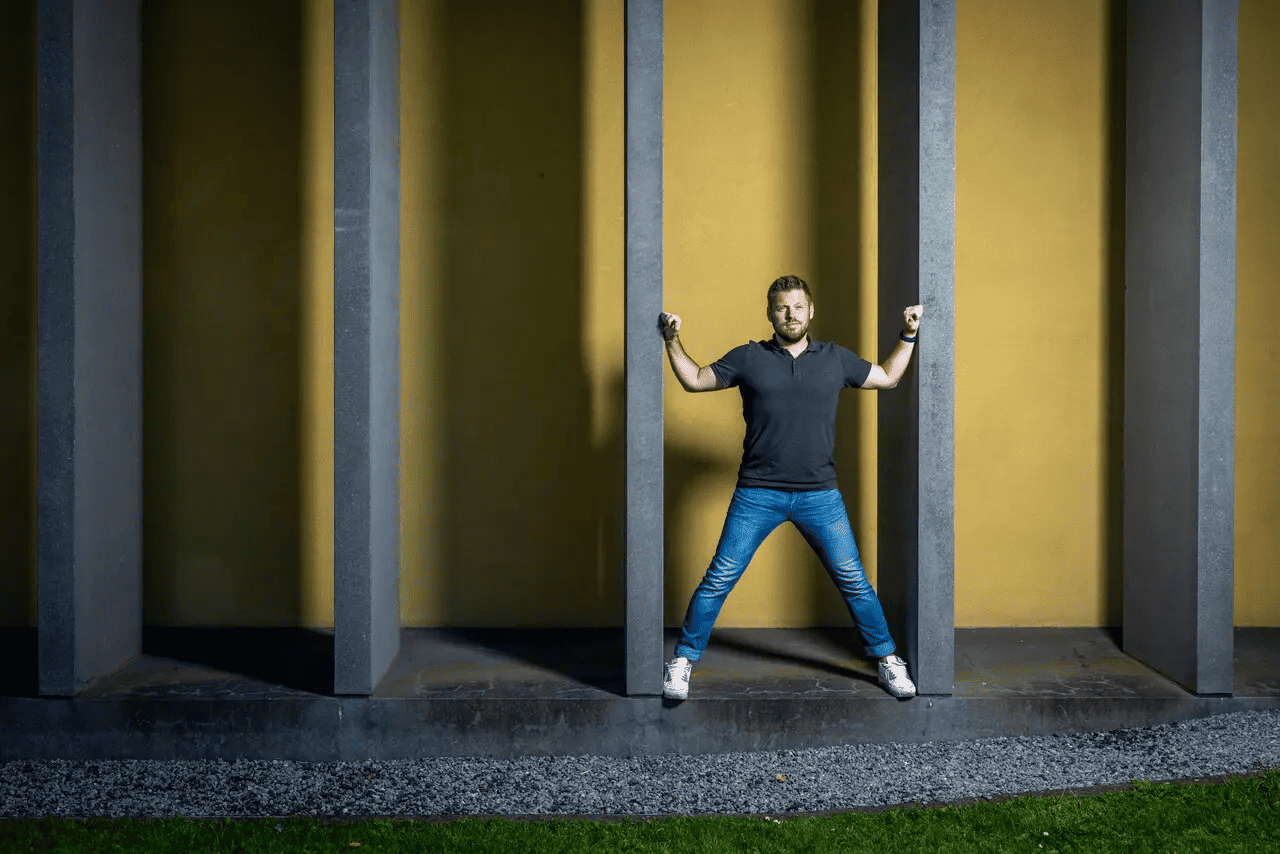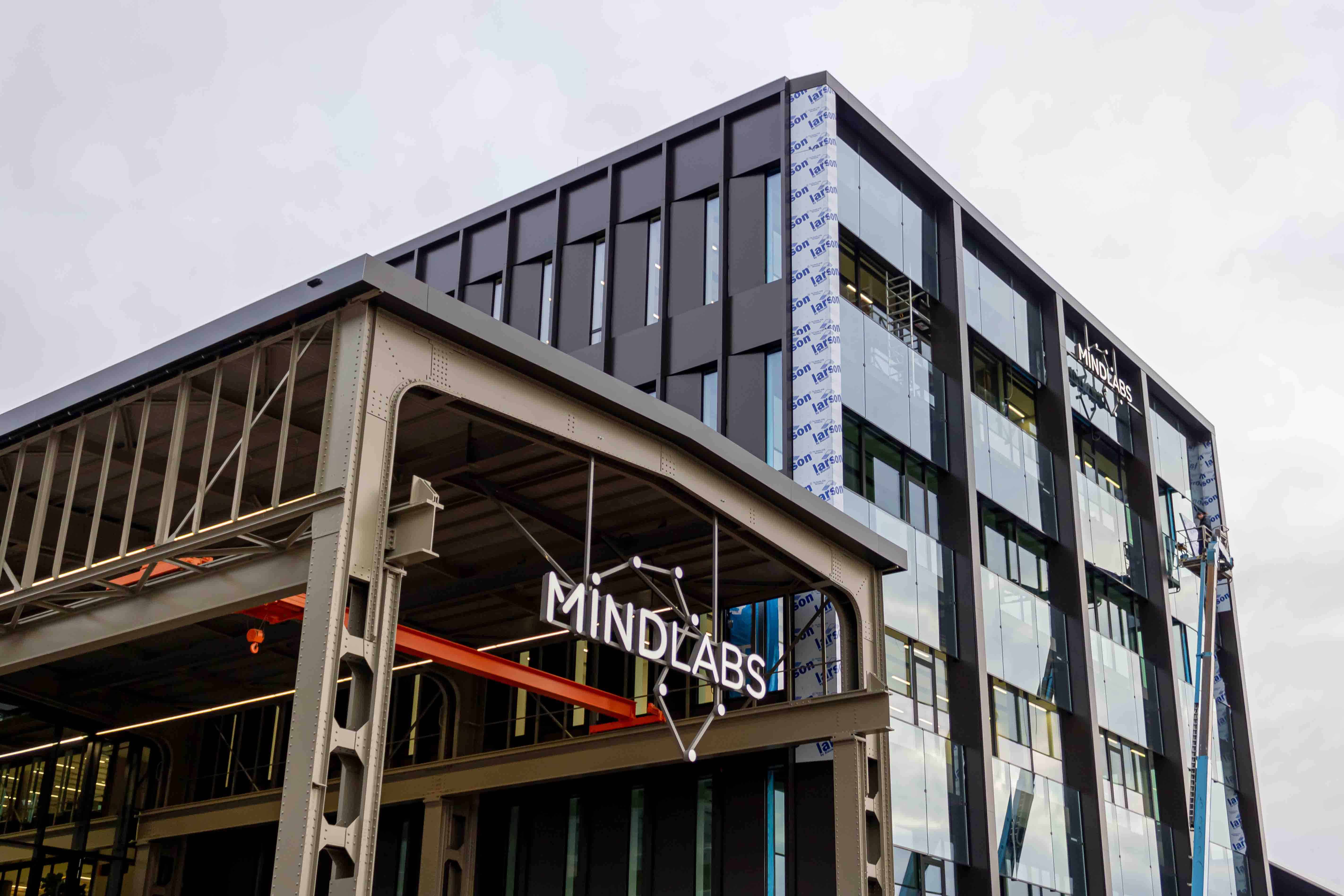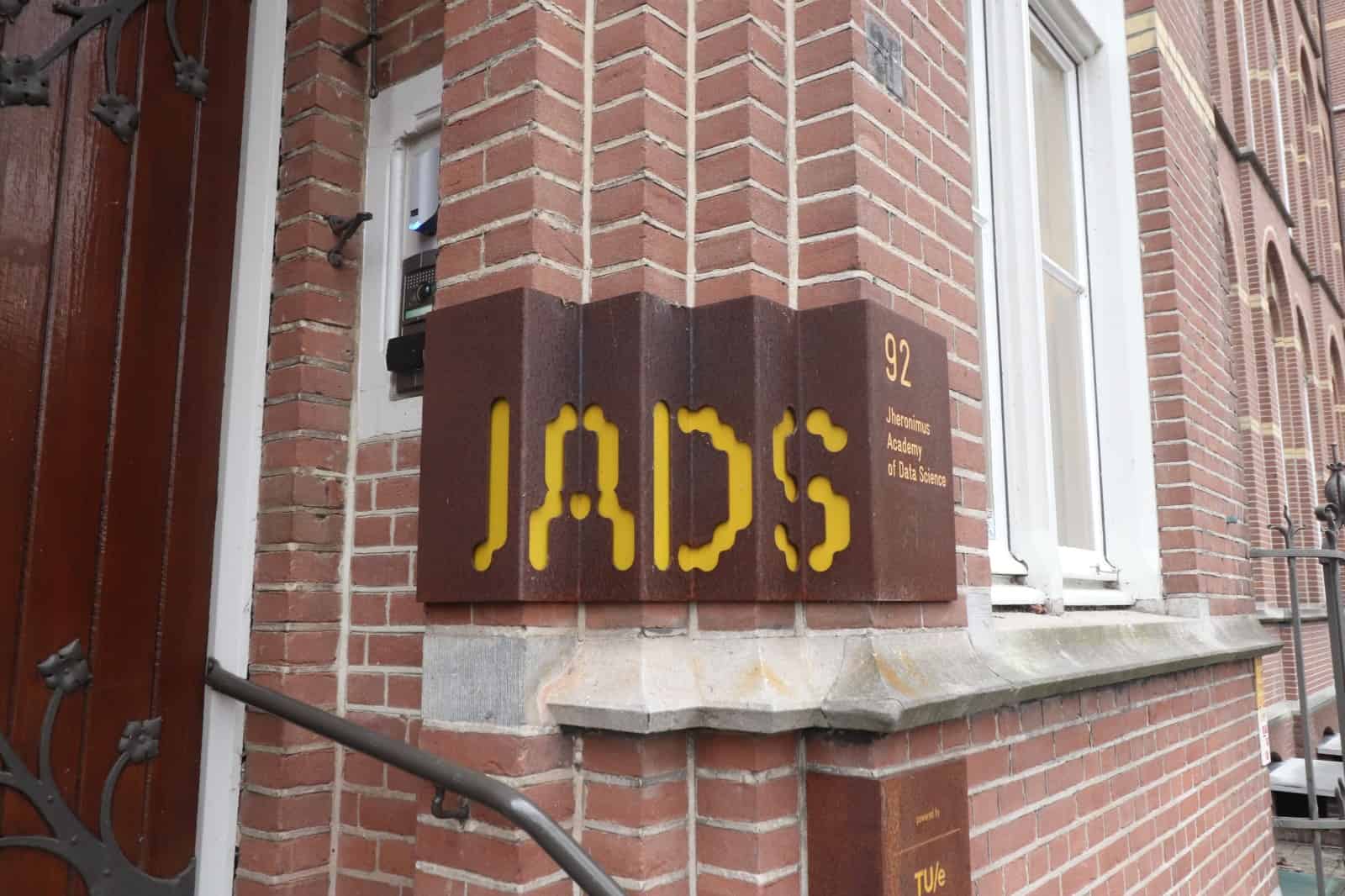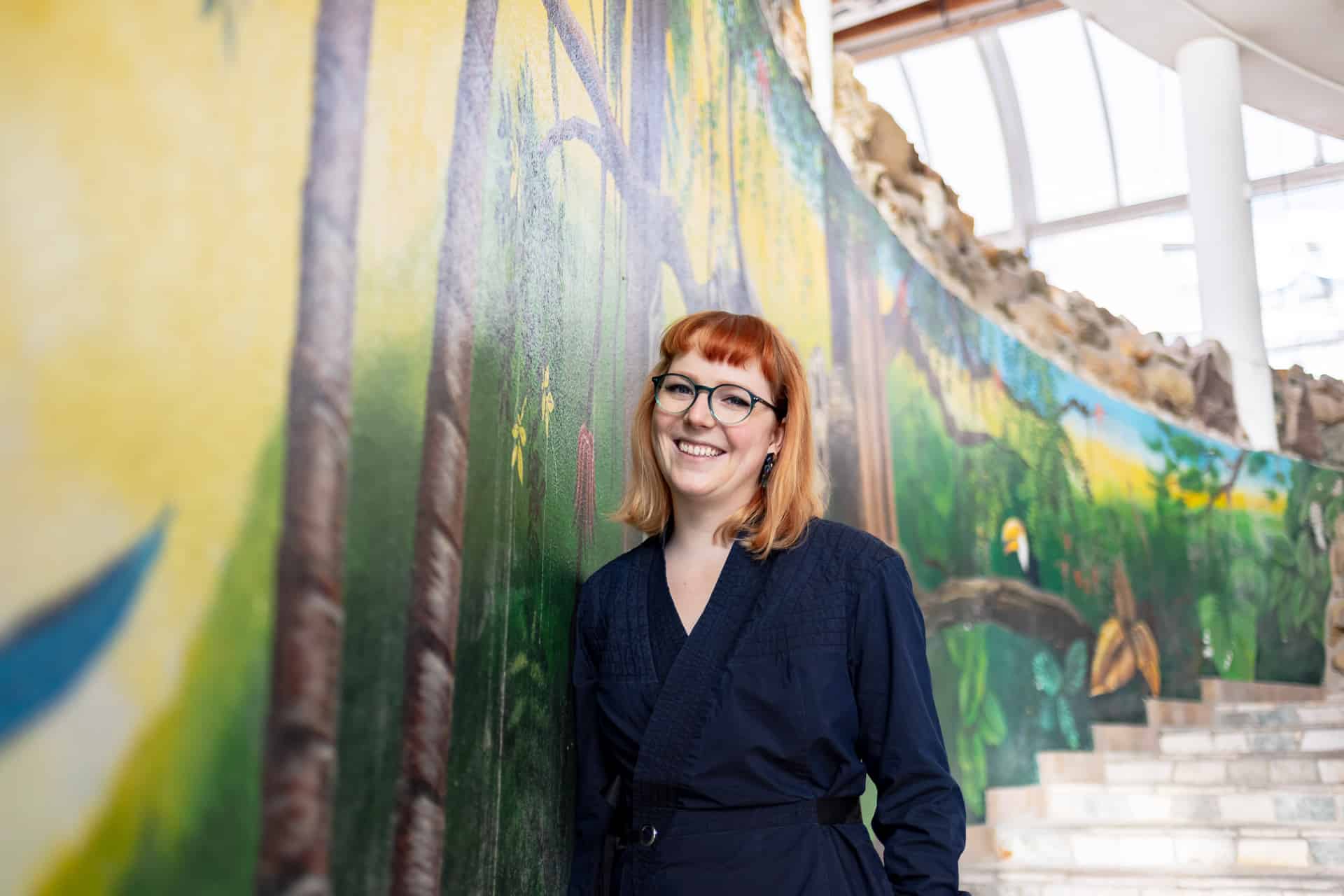
When he explains at a birthday party what he researches, the scientist compares himself to a postal delivery driver. “When you order a parcel, the packaging should protect the contents. It should be a sturdy box that is easy to transport, and has the right address on it. It’s no different with nanoparticles. I also make packages, but so small that they are capable of delivering something into cells of the body.”
Practical explanation
The comparison with a postie would seem to typify Van der Meel. During our chat, it is worth noting that the scientist, who received the prestigious VIDI grant last summer, explains his research in very practical terms. The fact that everyone was suddenly talking about vaccines and mRNA did not faze Van der Meel. He likes to share what his work is about, even sees this as his responsibility. For instance, he gave a lecture for the University of the Netherlands and organized Pint of Science, an event where scientists speak to members of the general public about their work over a beer in a pub.

Delivering drugs effectively
Medications taken as pills, such as paracetamol, disintegrate in the stomach, are absorbed into the blood and then spread throughout the body, even where they are not needed. This is not a problem, as the side effects tend to be minimal. For chemotherapy, for example – which also spreads through the body this way – it is a different story. This therapy destroys healthy cells as well as cancer cells.
The nanopackages that Van der Meel is working on should deliver drugs more effectively, resulting in fewer side effects. He is doing this for RNA drugs in particular, the newest kind of medicine, which allows proteins to be produced by the patient’s own body.
Van der Meel: “So the idea is that you can use the body as your own personal medication factory. That said, our body has learnt to recognise foreign RNA as an indication of infection and consequently clean it up. To harness the body as a medicine factory, you have to make sure the RNA doesn’t break down and that it reaches the right place in the body.”
To prevent it from disintegrating, the RNA is encapsulated in fat globules that do not disintegrate until they are absorbed into the cells. This releases the drug to the right place.
The pandemic as an accelerator
These fat globules, or lipid nano particles, are also used in the corona vaccines from Pfizer/BioNTech, Moderna and CureVac. The nanotechnology was developed by the research group of Pieter Cullis at the University of British Columbia in Canada. Van der Meel was part of this group from 2015 to 2019.
Corona has fast-tracked RNA vaccine and drug research. Whereas it normally takes years to introduce a vaccine to the market, the mRNA vaccine was ready within one year. “I knew it could be done, because in 2018, the first drugs made up of lipid nanoparticles had already been approved. So the nanotechnology was already here. But that it could happen so fast, that really amazed me.”
Precision Medicine Group
In 2019, Van der Meel was recruited by Professor Willem Mulder. The professor wanted to set up a new group as a collaborative effort between TU/e and Radboud University Nijmegen. Recently, the Precision Medicine Group, of which Van der Meel is “business leader”, went on its first retreat to Friesland. “By now, our group is made up of about 15 or 20 people. It was very special to see them all together, we have been working so hard for that over the past few years. This coming year, our first aio [student assistant in training, ed.] is going to earn their PhD. That is also an incredible milestone.”
If you ask Van der Meel, the Covid-19 vaccines are an “incredibly good example” of the convergence of nanotechnology and the immunology field. This is also the power of the research group. “TU/e is a real engineering school, not an academic hospital. Because of our link with Radboud University Nijmegen, we still have that connection with the medical side.” That he is able to make a direct impact on patients with his research is his greatest motivation. “Working on something you can really help people with, that is what really motivates me.”
2022: VIDI grant and a permanent appointment
2022 was a jackpot year for Van der Meel. For one thing, he landed a VIDI grant. The aim is to develop nanotechnology that can deliver RNA to specific immunity cells and thereby influence the immune response further. Not only that, he also heard last month that his tenure track has led to a permanent appointment. “Besides the VIDI grant, this is definitely a highlight. It means that my colleagues rate my research as innovative and progressive, so that’s really great.”
“Working on something you can really help people with, that is what really motivates me.”
Roy van der Meel
Looking ahead to 2023 and beyond, Van der Meel has high hopes for the new generation of RNA drugs. “Look, now we can inject an RNA drug into the bloodstream using nanotechnology. But, in the future, we can modify those RNA packets so that you are able to deliver them in a targeted way. For instance, we can target lung disease by inhaling RNA particles.”
Vaccines against cancer?

Furthermore, the scientist also sees that developments surrounding gene editing are moving extremely fast. “Gene repair is extremely interesting. Papers were published last year showing how patient’s cholesterol levels can be kept low for a year with a single syringe of an RNA drug. A major drawback of the mRNA vaccine is that it does not lead to a lasting change. Using gene editing, you can permanently influence DNA. Perhaps in a few years, we will be able to produce personalised anti-cancer vaccines. Thankfully, developments in technology and innovation are still progressing despite everything. I find that very encouraging.”
Van der Meel is looking forward to 2023 on a more personal level too. “I became a father of twins during the pandemic. Next year, we are moving with our family from a flat to a newly built home. I am really looking forward to that. Watching our twins grow up is actually the greatest, continuous highlight in my life for me.”







